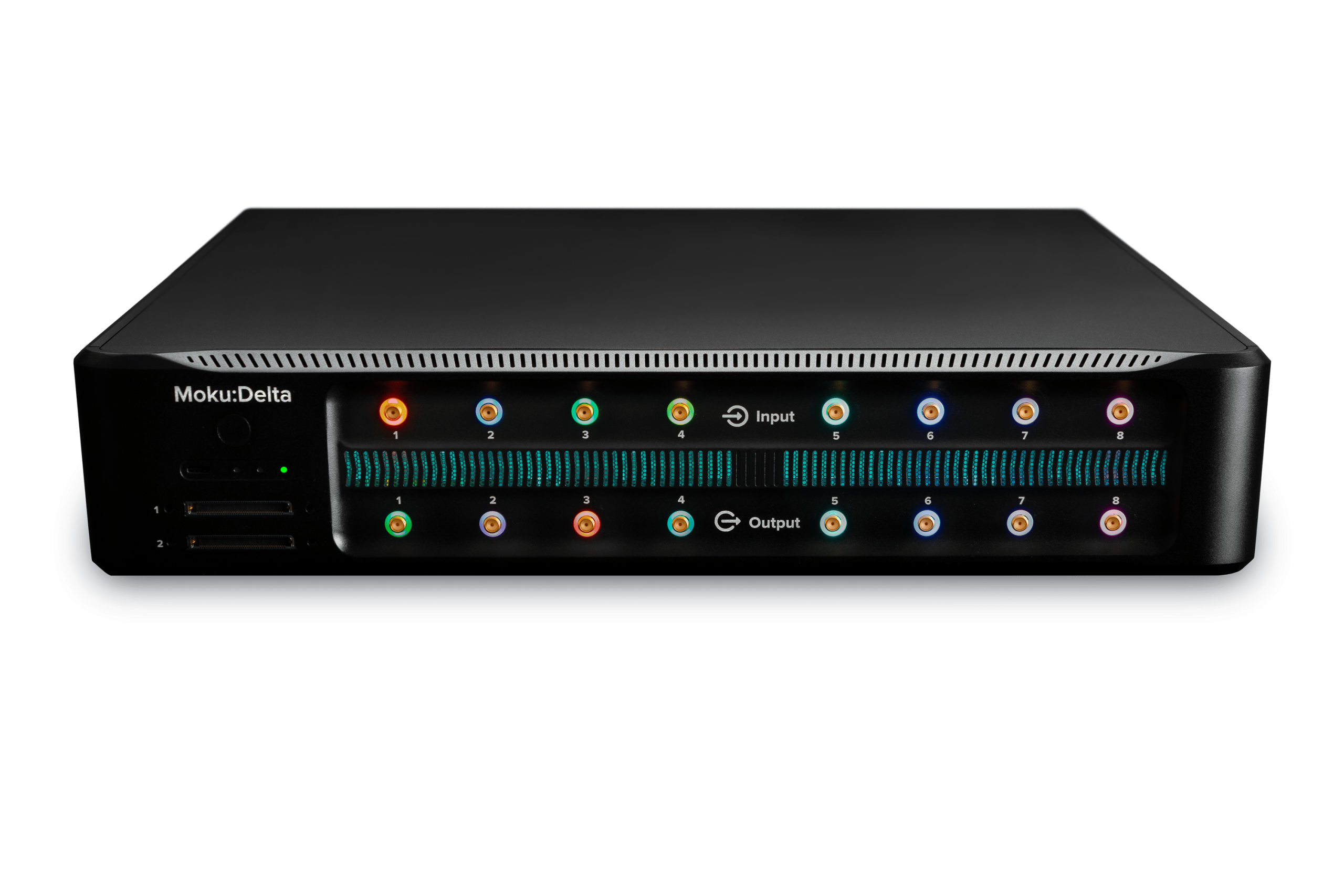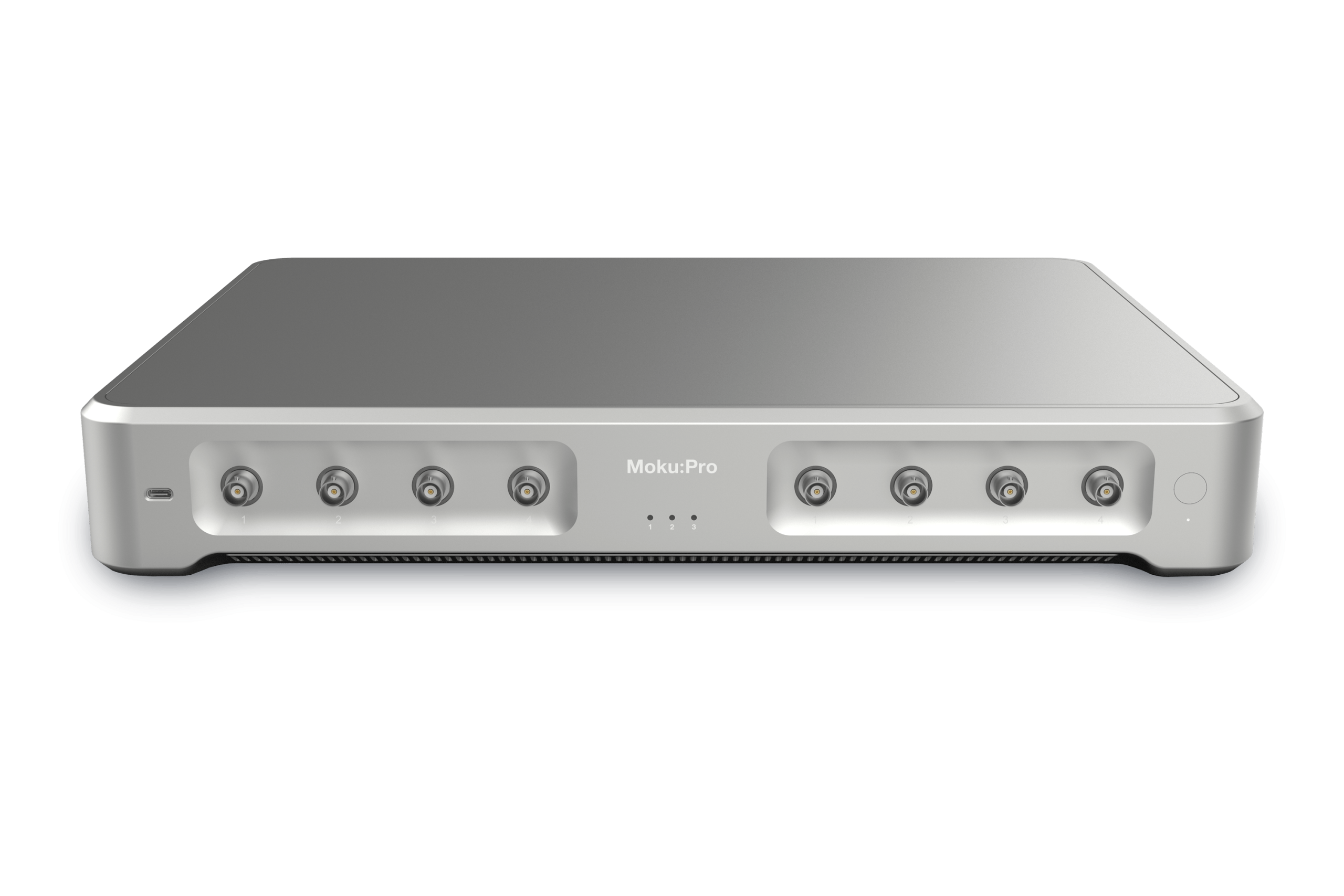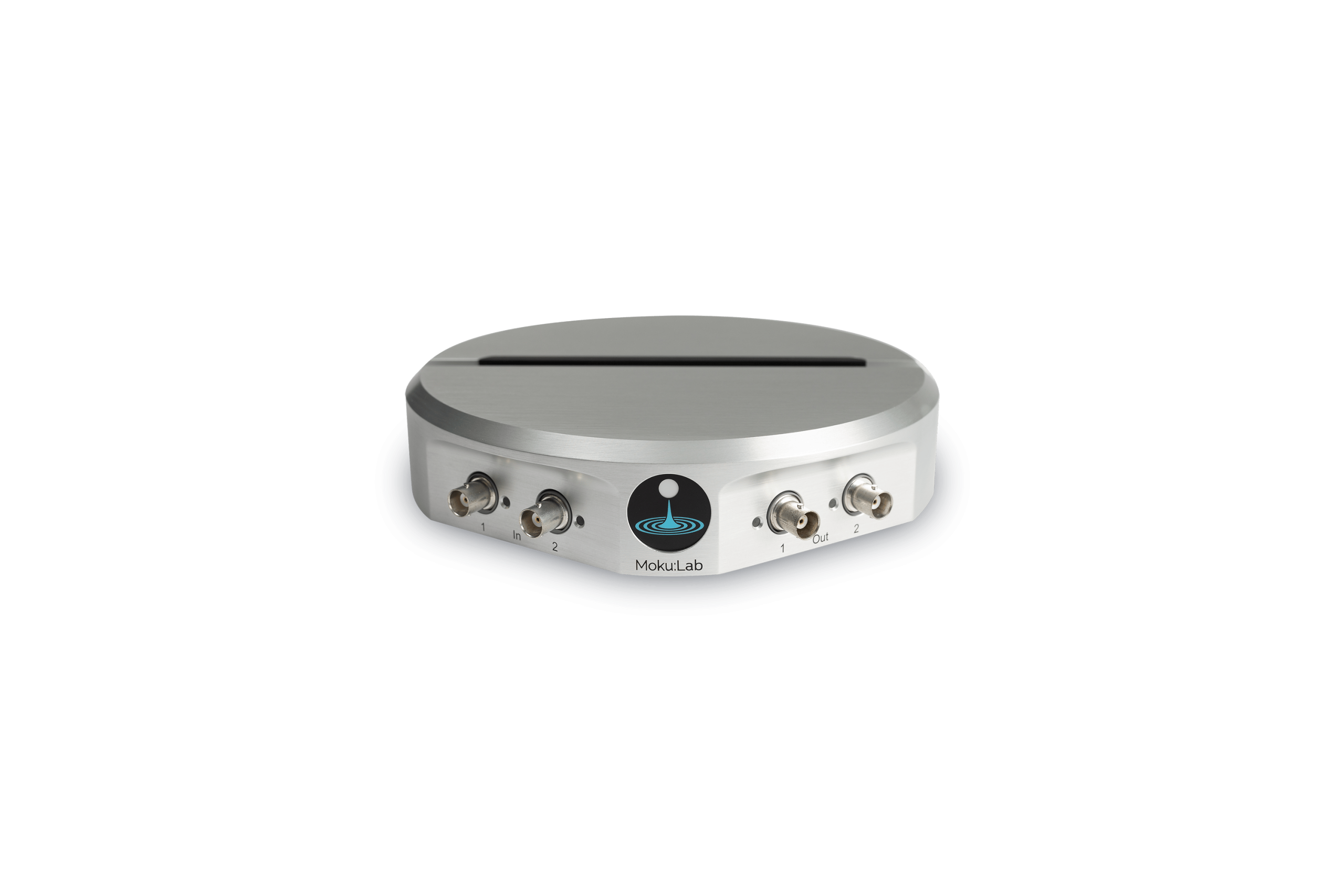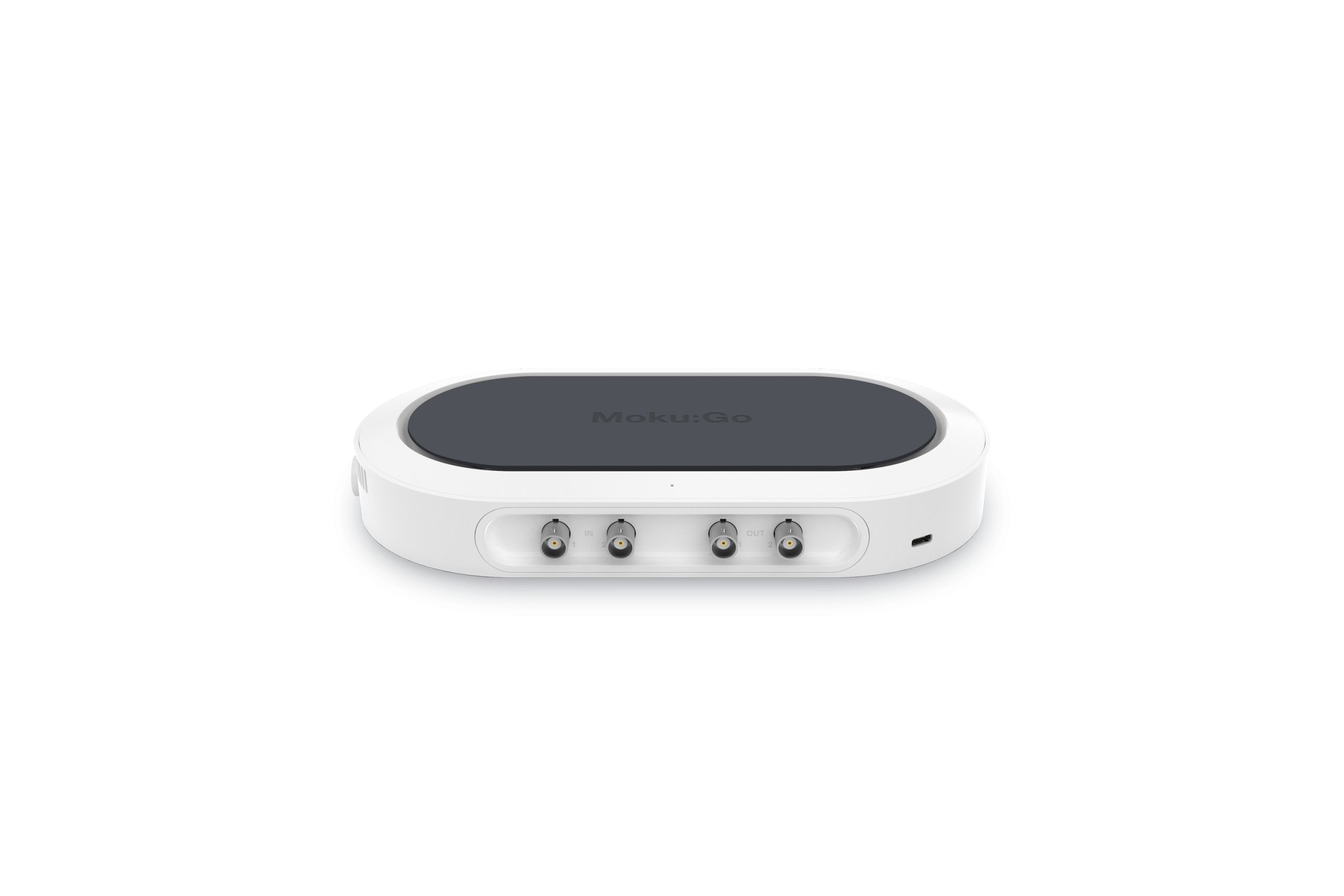LabVIEW API
Our LabVIEW integration contains all the blocks needed to control your device, build your own interface, and incorporate the power of Moku hardware into your existing virtual instruments (VIs).
Get started

Control, build, and incorporate
The LabVIEW API includes both full app versions and example files for you to seamlessly integrate Moku hardware into your workflow. Individual commands are broken up into discrete blocks, allowing for a high level of control over the amount of functionality required.
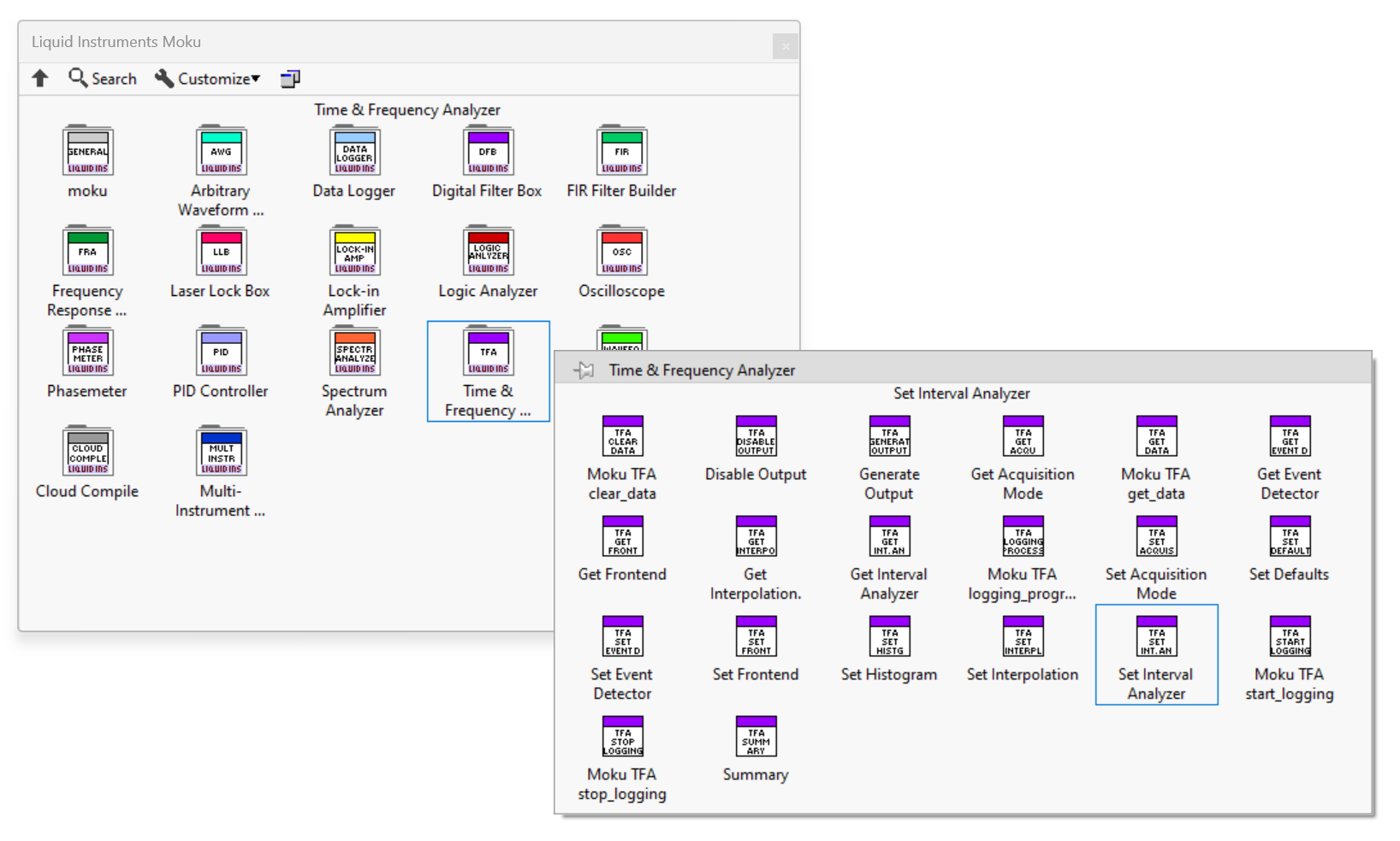
Take control with LabVIEW
The LabVIEW API allows users to deploy and switch instruments, adjust instrument parameters, and monitor and save data during different stages of digital signal processing. You can create your own automated test sequence or incorporate Moku into an existing setup to work harmoniously with other equipment.
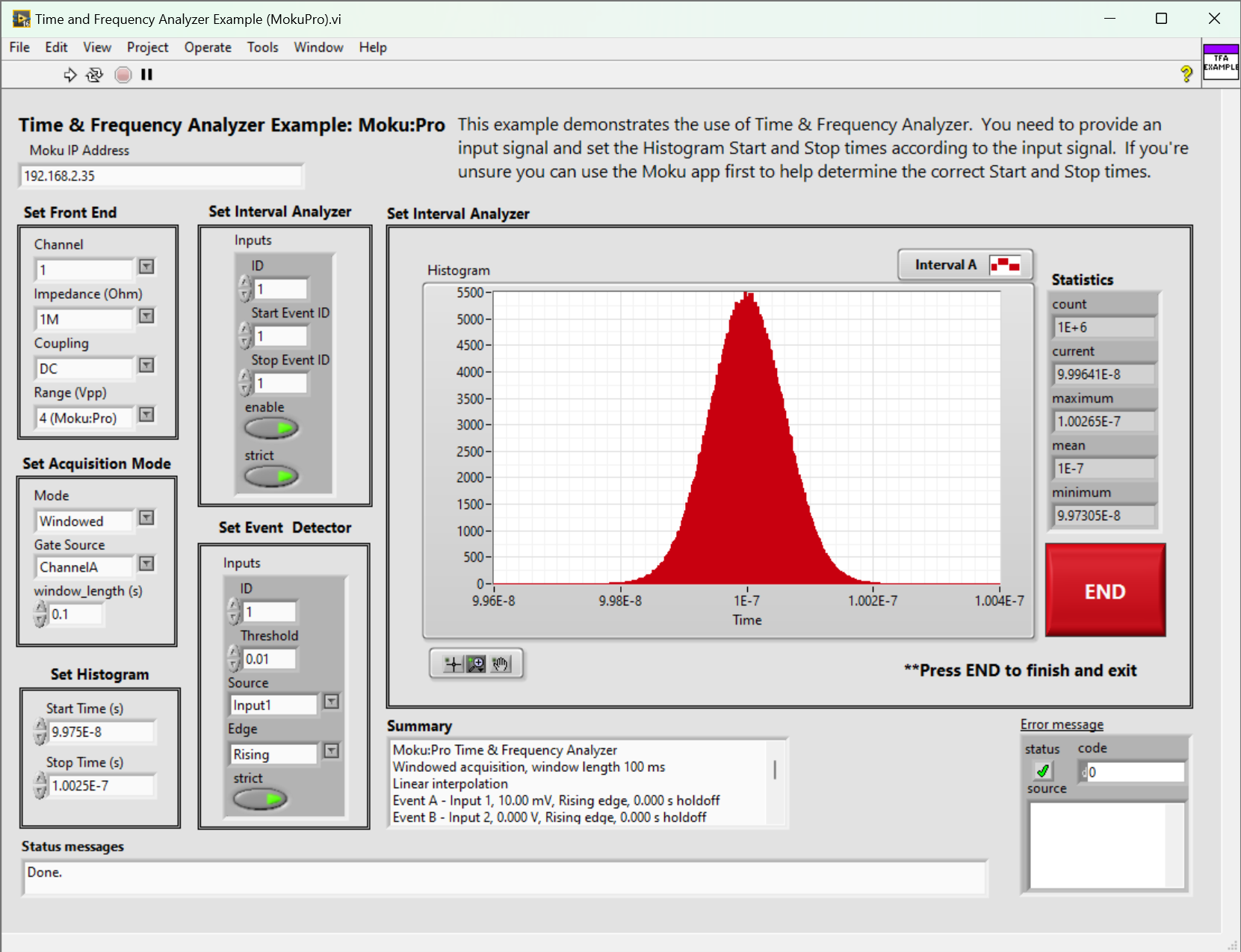
Comprehensive examples for each instrument
We’ve provided more than a dozen examples, including fully functional VIs for each instrument to help you get started with LabVIEW. You can build your instruments from scratch or utilize our existing framework to extend their capabilities.
Before you start
Moku API for LabVIEW requires version 2016 or newer
Moku API for LabVIEW is installed through the JKI VI Package Manager which may have to be installed separately.
Software download
Download the LabVIEW API, then double-click to begin the installation process. Example VIs are available under “Find examples” in the LabVIEW Help menu.
LabVIEW API is currently available for Moku:Pro, Moku:Lab, and Moku:Go
Documentation
Full API documentation and a comprehensive Getting Started Guide for LabVIEW are provided. Example VIs are available under “Find examples” in the LabVIEW Help menu.
